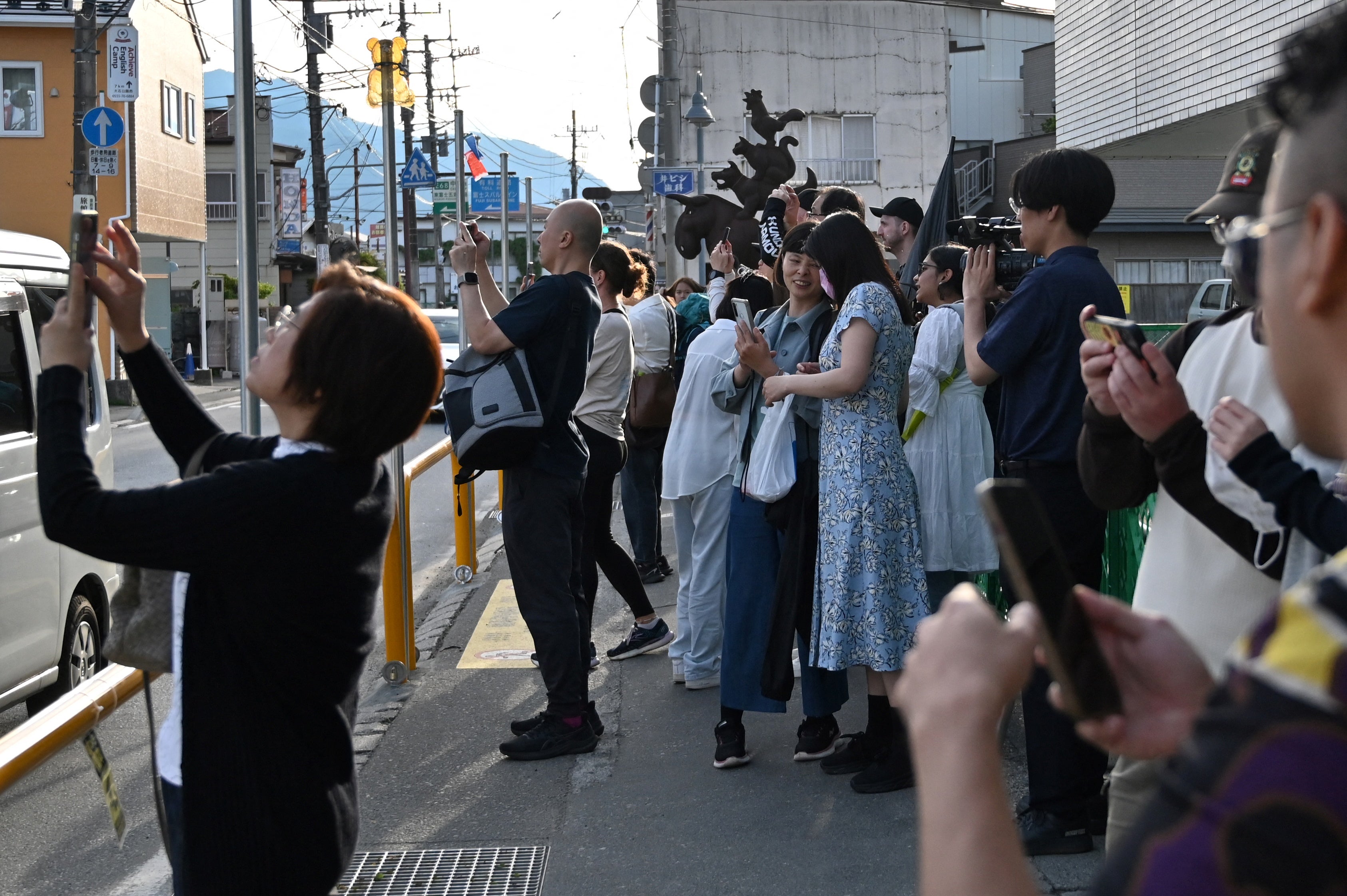Japan looks to fight overtourism as country sees record visitors
The weak yen has boosted Japan’s appeal

Your support helps us to tell the story
From reproductive rights to climate change to Big Tech, The Independent is on the ground when the story is developing. Whether it's investigating the financials of Elon Musk's pro-Trump PAC or producing our latest documentary, 'The A Word', which shines a light on the American women fighting for reproductive rights, we know how important it is to parse out the facts from the messaging.
At such a critical moment in US history, we need reporters on the ground. Your donation allows us to keep sending journalists to speak to both sides of the story.
The Independent is trusted by Americans across the entire political spectrum. And unlike many other quality news outlets, we choose not to lock Americans out of our reporting and analysis with paywalls. We believe quality journalism should be available to everyone, paid for by those who can afford it.
Your support makes all the difference.Japan has set a record high for monthly tourists in June, as its weak yen fuelled a tourism boom that is becoming a key driver for the economy.
The number of foreign visitors for business and leisure was 3.14 million last month, exceeding the previous monthly record of 3.08 million set in March and up from 3.04 million in May, data from the Japan National Tourism Organization (JNTO) showed.
The 17.78 million arrivals through June were also a record for a half-year period and on pace to smash through an annual record high of 31.9 million in 2019, before the COVID-19 pandemic shut global borders.
Spending by visitors is estimated to reach 8 trillion yen ($50 billion) this year, Prime Minister Fumio Kishida said on Friday, adding that the government needed to guard against so-called “overtourism“.
The tourism industry is expected to become Japan’s second-biggest export sector for 2024, behind automobiles and ahead of electronic components.
The yen’s slide to a 38-year low against the dollar has made Japan an irresistible bargain for overseas travellers. Out of 23 markets tracked by the JNTO, travellers from 18 regions set new records for June arrivals. Visitors from Taiwan and the United States set their highest totals for any month.
“The weak yen has undoubtedly boosted Japan’s appeal, encouraging spontaneous travel plans,” said Naomi Mano, president of high-end travel agency Luxurique. “We are also witnessing a more diverse mix of countries visiting Japan, a notable shift from 2019 when approximately 30% of travellers were Chinese.”

Arrivals from mainland China in June were down 25% from the same month in 2019, the JNTO data showed.
While traveller spending has been a boon for the economy, the masses of people at visitor hot spots has rankled some locals and prompted concerns among policymakers.
Crowded trails and increased littering on Japan’s sacred Mt. Fuji this month prompted officials to impose admission fees and hiker limits for the first time.
The mayor of Himeji in western Japan also last month suggested charging foreigners about six times the rate residents pay to enter the city’s famous samurai-era castle.
Even so, the government is counting on tourism becoming a larger part of the nation’s economy. Prime Minister Kishida reiterated a goal of nearly doubling annual visitors to 60 million and their spending to 15 trillion yen by 2030.
He told a panel of ministers in Tokyo that the government needs to build up regional airports and other infrastructure to handle the load.
“It is important to promote tourism to regional areas and take measures to prevent overtourism,” he also said.
Join our commenting forum
Join thought-provoking conversations, follow other Independent readers and see their replies
Comments